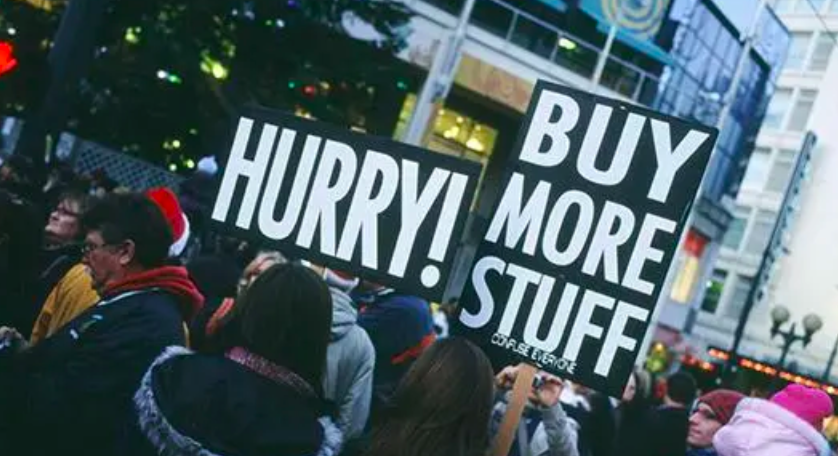The environmental impact of Black Friday
For many, Black Friday marks the beginning of Christmas shopping. Originating in the US, the event starts the day after Thanksgiving and has been adopted in the UK since around 2013. However, in recent years the holiday has become an excuse for mass consumerism, and with big deals and discounts on nearly all products, it encourages people to start their Christmas shopping early and in many instances, aggressive marketing campaigns entice shoppers to buy things they don't need.
Due to COVID-19, most Black Friday sales are now generated from online purchases, which does have some benefits in terms of reducing the number of people in shops, and mitigating some of the frenzy and chaos that has become synonymous with Black Friday. In fact online sales are so popular, that online traffic increases by 220% on Black Friday in comparison to usual daily online traffic. And with online retailing, comes the opportunity for more deals, with 70% of retailers offering free shipping to entice shoppers to make a purchase. With all of these incentives, it's no wonder so many people have switched to Black Friday shopping online, but the environmental consequences are hidden and vastly overshadowed by the deals. 
What are the Environmental Impacts?
From Black Friday alone, 420,000 metric tonnes of greenhouse gas emissions are released every year, the equivalent of 435 return flights from London to New York. These sales represent 0.12% of the UK's annual carbon footprint. Black Friday encourages over-consumption so is no surprise that with that comes waste, and a lot of it. With 80% of products discarded after only a few uses, it is clear we need to educate and encourage stepping back from this culture of over-shopping.
Optoro calculated that during Black Friday in the US, only taking into consideration the return of unwanted items uses over 1.2 billion gallons of diesel which releases 12 million tonnes of CO2 into the atmosphere. These figures highlight the need to tackle mass consumerism and the need for greater awareness about how our actions are affecting the environment.
What Can We Do?

As the effects of Black Friday worsen each year, some businesses have decided to do something about it. This has lead to the creation of ‘Green Friday’. This concept involves shopping from responsible brands that have pledged to reduce their environmental impact and that are actively support sustainability programmes and initiatives, for example, planting trees or other worthy causes.
To shop more mindfully during this period, we can:
- Buy less stuff - especially stuff that we don't need
- Shop in charity shops
- Avoid the ‘shop to you drop’ mentality
- Purchase from local brands
- Research businesses and products before buying
Many businesses are realising their impacts and are eager to change their business practices to become more sustainable during the ‘Green Friday’ period. Here are some businesses to shop from:
- Passenger Clothing, who plant 5 trees with purchase
- Patagonia, who in 2020 donated 100% of their Black Friday profits to environmental causes
- Tentree, where each item bought, 10 trees are planted
- The Nappy Gurus place 30% off their sustainable ranges, and plant a tree with each sale
 Local Sustainable Brands
Local Sustainable Brands
- BeMona for activewear
- Jiminy for eco-friendly toys
- Bogman for clothes
- Organis Movement for yoga wear
- Kahm Sustainable Swimwear targeted for wild swimming
- Palm Free Irish Soap for soap that’s made with rainwater
- Chupi for lab-grown diamond jewellery
- Hey, Bulldog! For handmade products
- Sundrift for outdoor materials
- Plean Nua for low-waste body products

